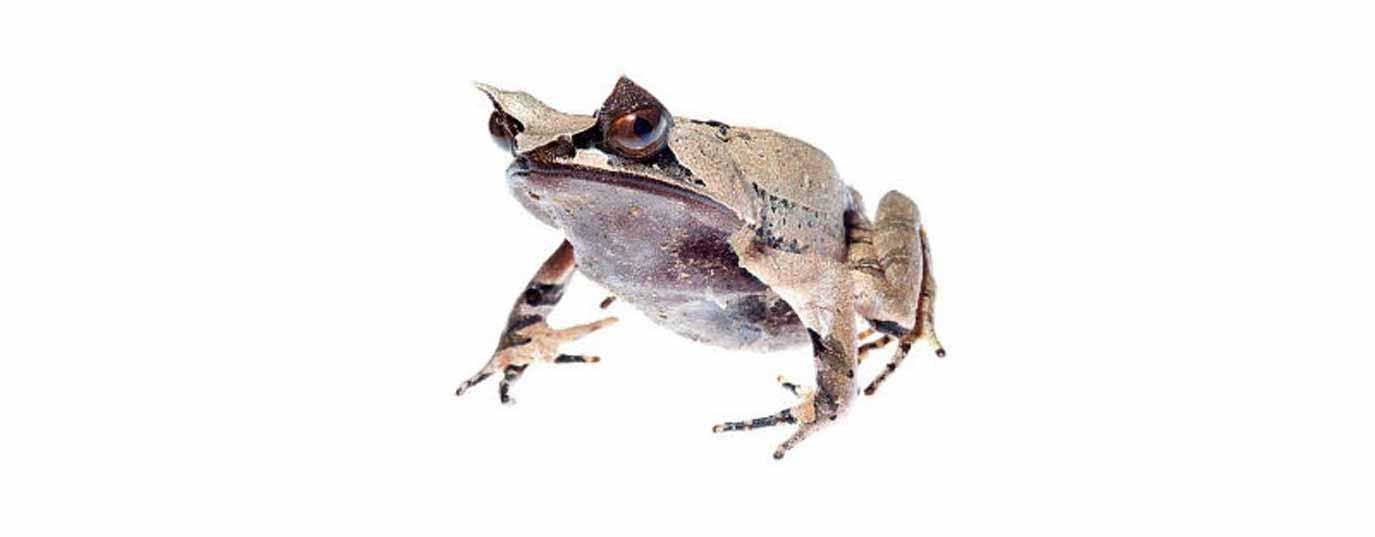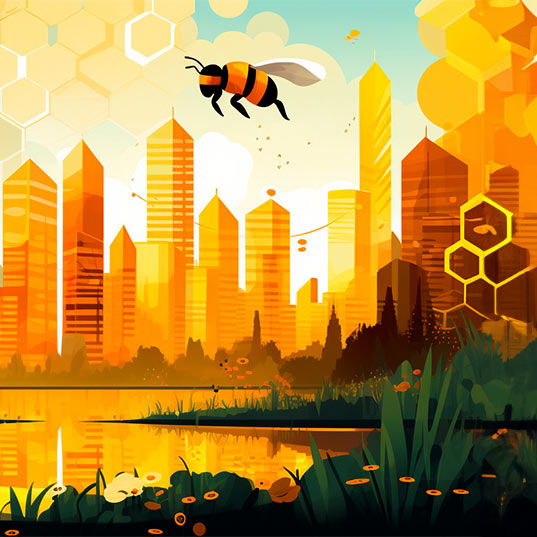What would happen if bees disappeared?
In Europe alone, 84% of the 264 crop species and 4,000 plant varieties exist thanks to pollination by bees.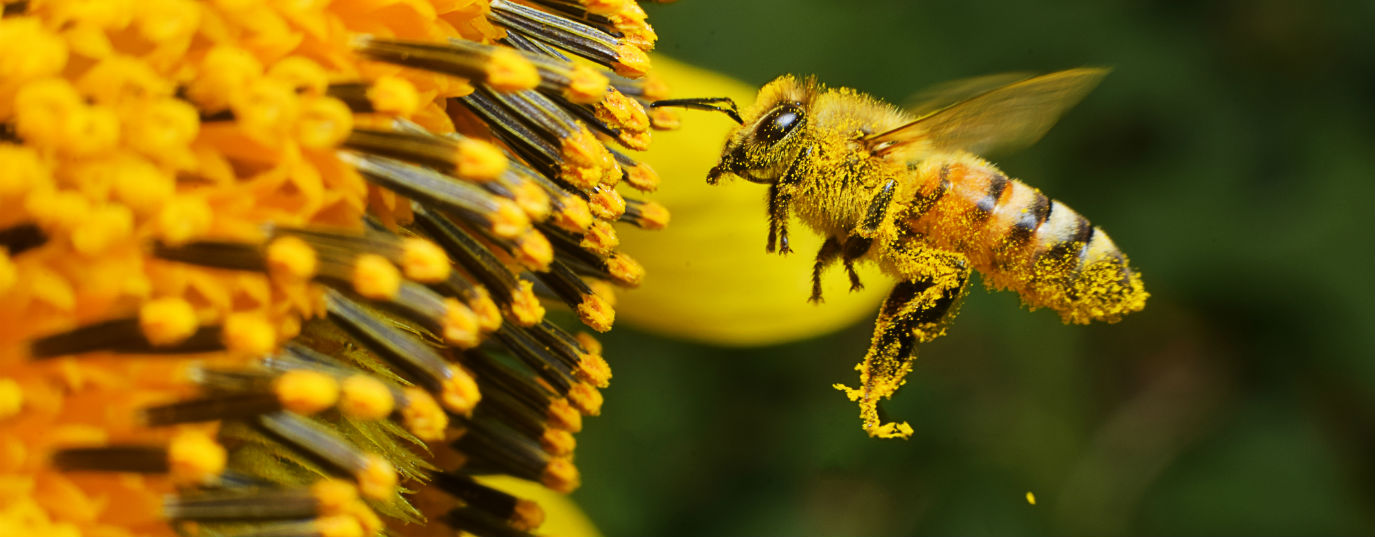
Some attribute the following quote to Albert Einstein: "If the bee disappeared off the face of the Earth, man would only have four years left to live. No more bees, no more pollination, no more plants, no more animals, no more man." We have not found any reliable sources confirming that the scientist actually said this, but there is no doubt that its message is nevertheless true and alarming.
The Food and Agriculture Organization of the United Nations (FAO) states that there are 100 crop species that provide 90% of food around the world and 71 of these are pollinated by bees. In Europe alone, 84% of the 264 crop species and 4,000 plant varieties exist thanks to pollination by bees.
On this continent in particular, bee populations and honey reserves have declined dramatically since 2015 — by 30 % per year in some areas. And the latest statistics from beekeepers in the USA are not much more reassuring — according to the Bee Informed Partnership poll, last winter 37 % of honeybee colonies died, 9 % more than the usual average for winter deaths. But why are these insects disappearing?
Pesticides and bees
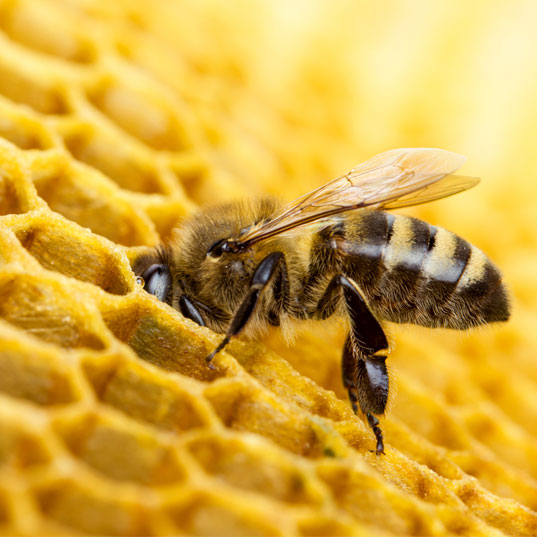
In Oregon 50,000 bees died due to the effects caused by a pesticide, this is an example of how different substances can have an impact. The European Food Safety Agency (EFSA) confirmed that the cause behind the mass death of bees in Europe is specifically the use of a particular type of fertiliser called neonicotinoids.
The mixture of substances interferes with the learning circuits in insects' brains (Nature Magazine releases*). They make them slower to learn or they completely forget basic associations for their survival, such as linking floral aroma and food. The bees dies as they are not able to feed themselves.
In 2018, the European Union decided to completely ban outdoor use of three neonicotinoid insecticides that are frequently used worldwide in maize, rapeseed, cotton and sunflower crops. And the European Parliament has already proposed that reducing usage of these insecticides should become a key objective of the common agricultural policy (CAP) in the future.
Killer mites and bees
The Varroa mite is one of bees' greatest enemies and one of the biggest causes of their disappearance. It is an external parasite that invades the insect and feeds on its blood and also transmits lethal viruses to the rest of the hive, including deformed wing virus. This mite has spread across most of the world, except Australia so far.
A group of scientists from the University of Texas at Austin, USA, have developed a project that is pioneering the use of genetic engineering to improve bee health. The project involves creating genetically modified strains of bacteria that live in the honeybees' digestive system to protect them from the scourge of this destructive mite that causes colonies to collapse.
According to the study, bees with genetically modified bacteria are 36.5 % more likely to survive deformed wing virus. Mites that feed on these bees are 70 % more likely to die than mites that feed on bees that have not received any treatment.
Climate change and pollution effects in bees
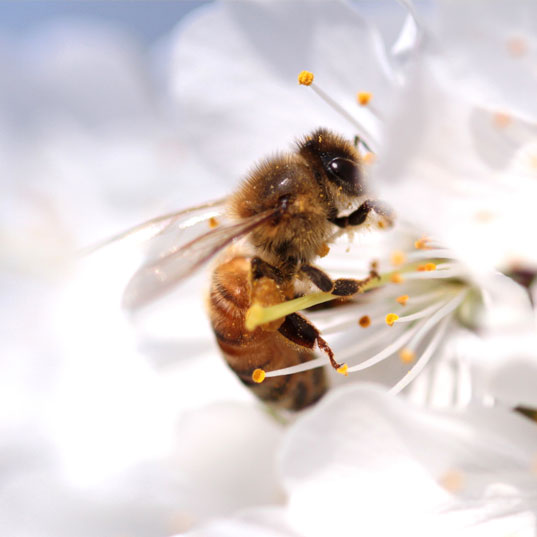
Air pollution reduces the strength of chemical signals sent out by flowers and bees and other insects find it more difficult to locate them. Climate change makes the situation worse as it alters flowering and the amount of plants due to rainy seasons, which affects the quantity and quality of nectar.
Terrible consequences of bees disappearing
In light of the above, the disappearance of bees would cause a true food crisis. Around 84% of commercial crops depend on bee pollination. For example, in Andalusia (Spain) in 1987 a good sunflower harvest was expected but this did not occur due to the lack of beehives; this was caused by the loss of bees from the varroa mite.
Solutions?
Brussels has already banned the 3 pesticides. We will have to wait and see new figures after the introduction of the ban. In terms of eliminating the mite, inventors in the United States has come up with an electrical system called Mitezapper, an electric box that irradiates heat and is 85% effective.
As for the elimination of the Varroa mite, we will have to wait and see how effective the new projects are in combatting the species using strains of bacteria.
Meanwhile, the University of Pennsylvania fights it with formic acid and other beekeepers have used powdered sugar.
The University Mar del Plata (Argentina) has trialled essential grapefruit oil with positive results. We can also fight this problem in our everyday life by taking steps to combat climate change and pollution although, even so, we are faced with questions such as:
Are there other measures? Are we in time to fix it or should we also work on preventing this phenomenon? Are other animals disappearing that at first do not seem to be essential yet without whose activity we could not conceive life?




